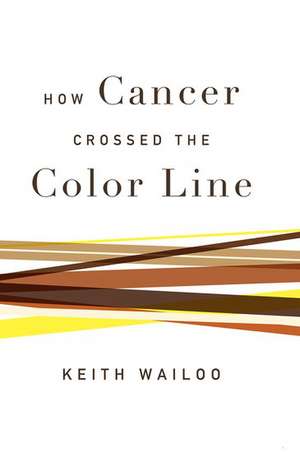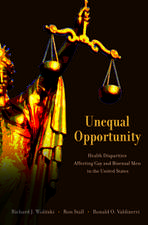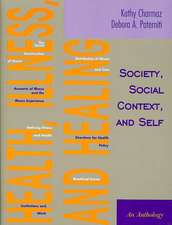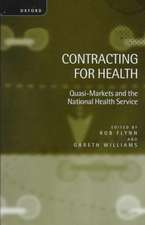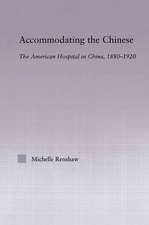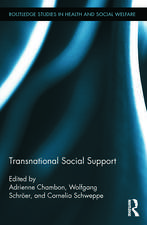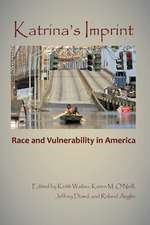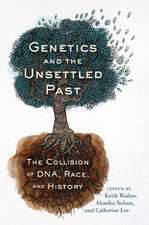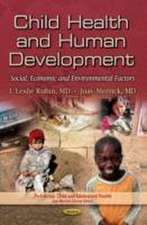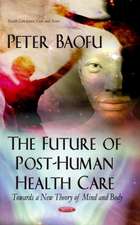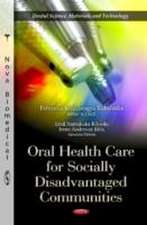How Cancer Crossed the Color Line
Autor Keith Wailooen Limba Engleză Paperback – 9 mar 2017
Preț: 226.65 lei
Preț vechi: 241.94 lei
-6% Nou
Puncte Express: 340
Preț estimativ în valută:
43.37€ • 47.26$ • 36.55£
43.37€ • 47.26$ • 36.55£
Carte tipărită la comandă
Livrare economică 12-18 aprilie
Preluare comenzi: 021 569.72.76
Specificații
ISBN-13: 9780190655211
ISBN-10: 0190655216
Pagini: 264
Ilustrații: 13 halftones
Dimensiuni: 155 x 231 x 18 mm
Greutate: 0.34 kg
Editura: Oxford University Press
Colecția OUP USA
Locul publicării:New York, United States
ISBN-10: 0190655216
Pagini: 264
Ilustrații: 13 halftones
Dimensiuni: 155 x 231 x 18 mm
Greutate: 0.34 kg
Editura: Oxford University Press
Colecția OUP USA
Locul publicării:New York, United States
Recenzii
Wailoo takes what already would have been an interesting, straightforward account of how racial perceptions of cancer changed over time and elevates it to a moving and humane examination of cancer's role in shaping American identity.
The sensitive, nuanced history under review thus fills a crucial gap in our understanding of the interrelationships between medical history and U.S. social history. Wailoo has superbly integrated a broad mass of historical sources into a coherent and compelling narrative .Particularly interesting throughout the book is Wailoo's analysis of the shifting meaning of 'race' throughout the 20th century as exemplified in discussions about cancer. In today's world of widespread disparities research and increasing genomic analysis, we need more of this sort of sophisticated analysis.
Wailoo reminds us of how American culture has shaped our awareness of this disease—and why knowing this history matters. His book provides a very useful, teachable, and thoughtful commentary on America's endless war on cancer; that war's more hidden racial and gender dimensions; and some of the reasons why we often seem, despite the endless media hyping of breakthroughs, not to be winning this struggle."
Keith Wailoo is the premier historian of the politics of medicine in America as it relates to the doings and sufferings of Black people. This book is a gem; it is vintage Wailoo-brilliant, rigorous and relevant!
A model of how to seamlessly weave together the complex intersectionality of class, gender and race. How Cancer Crossed the Color Line is a masterful account of how the reward structures of science funding, the profession of medicine, era-specific cultural stereotypes of women's 'proper place,' and shifting notions of racialized bodies have all converged to shape our views of who is at risk for cancer, and why.
Keith Wailoo deftly and provocatively places medical and public health studies into conversation with films, novels, and autobiographical narratives. In so doing, he offers a stunning historical account of the dramatic shifts in popular and epidemiological consciousness about cancer and racial difference. It is an account that provides a much-needed historical context to contemporary debates in the genomic sciences about race and racial difference.
Illuminating changing scientific and popular conceptions about who is at risk of cancer and why, How Cancer Crossed the Color Line compellingly argues that the answer to this question
A nuanced study of a complex subject.
The sensitive, nuanced history under review thus fills a crucial gap in our understanding of the interrelationships between medical history and U.S. social history. Wailoo has superbly integrated a broad mass of historical sources into a coherent and compelling narrative .Particularly interesting throughout the book is Wailoo's analysis of the shifting meaning of 'race' throughout the 20th century as exemplified in discussions about cancer. In today's world of widespread disparities research and increasing genomic analysis, we need more of this sort of sophisticated analysis.
Wailoo reminds us of how American culture has shaped our awareness of this disease—and why knowing this history matters. His book provides a very useful, teachable, and thoughtful commentary on America's endless war on cancer; that war's more hidden racial and gender dimensions; and some of the reasons why we often seem, despite the endless media hyping of breakthroughs, not to be winning this struggle."
Keith Wailoo is the premier historian of the politics of medicine in America as it relates to the doings and sufferings of Black people. This book is a gem; it is vintage Wailoo-brilliant, rigorous and relevant!
A model of how to seamlessly weave together the complex intersectionality of class, gender and race. How Cancer Crossed the Color Line is a masterful account of how the reward structures of science funding, the profession of medicine, era-specific cultural stereotypes of women's 'proper place,' and shifting notions of racialized bodies have all converged to shape our views of who is at risk for cancer, and why.
Keith Wailoo deftly and provocatively places medical and public health studies into conversation with films, novels, and autobiographical narratives. In so doing, he offers a stunning historical account of the dramatic shifts in popular and epidemiological consciousness about cancer and racial difference. It is an account that provides a much-needed historical context to contemporary debates in the genomic sciences about race and racial difference.
Illuminating changing scientific and popular conceptions about who is at risk of cancer and why, How Cancer Crossed the Color Line compellingly argues that the answer to this question
A nuanced study of a complex subject.
Notă biografică
Keith Wailoo is Townsend Martin Professor of History and Public Affairs at Princeton University. He is author of the award-winning book, Dying in the City of the Blues: Sickle Cell Anemia and the Politics of Race and Health.
